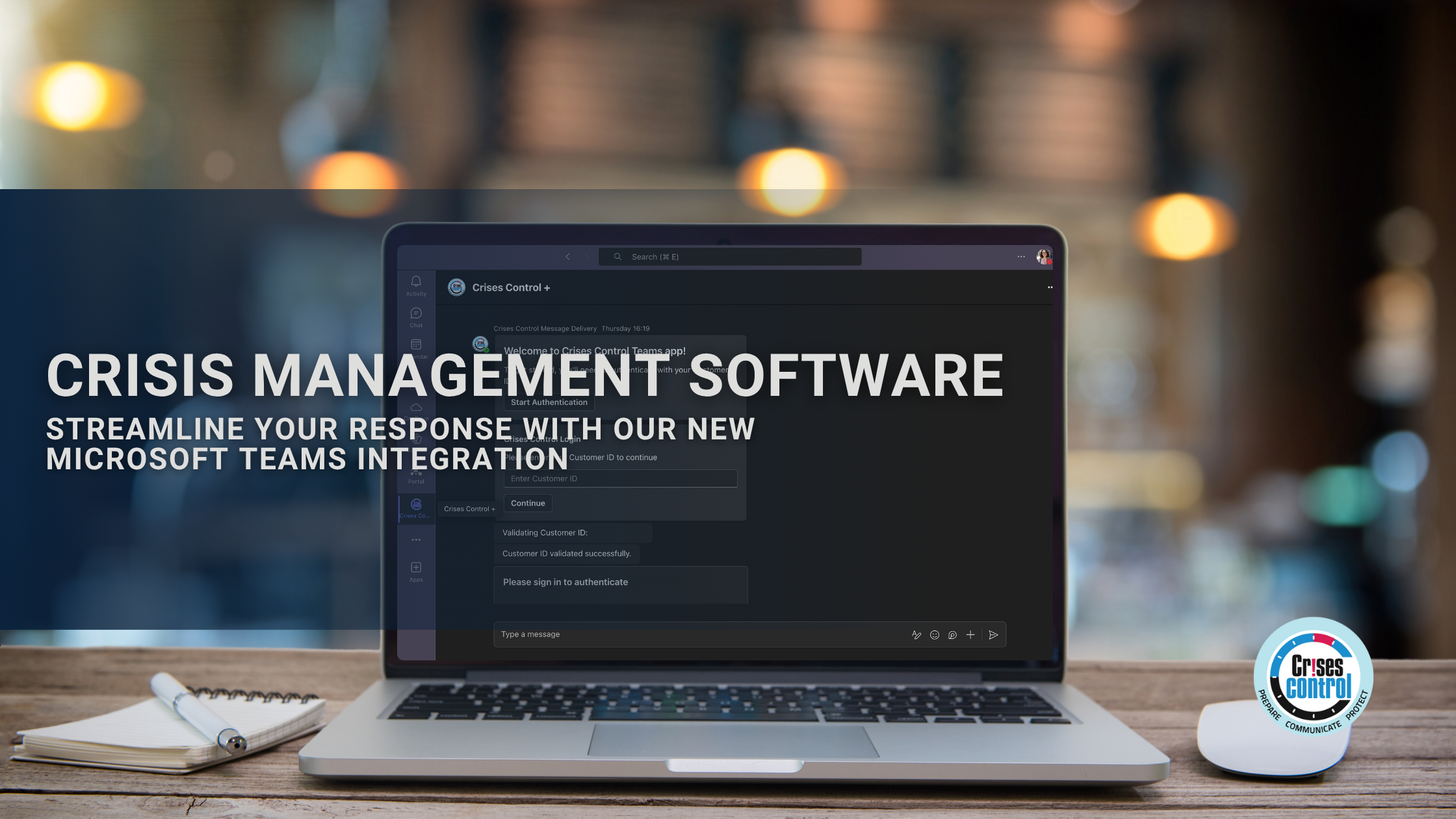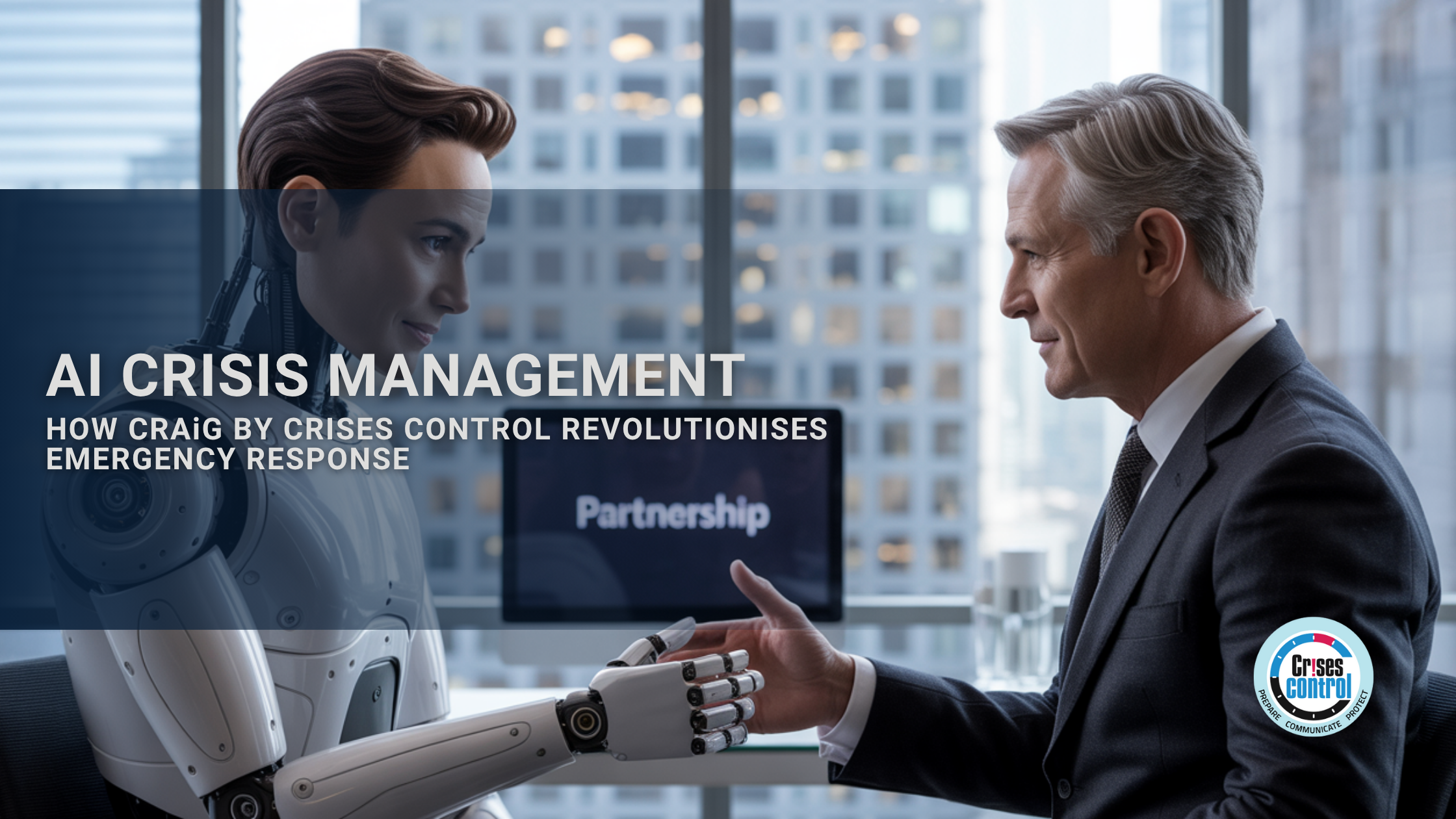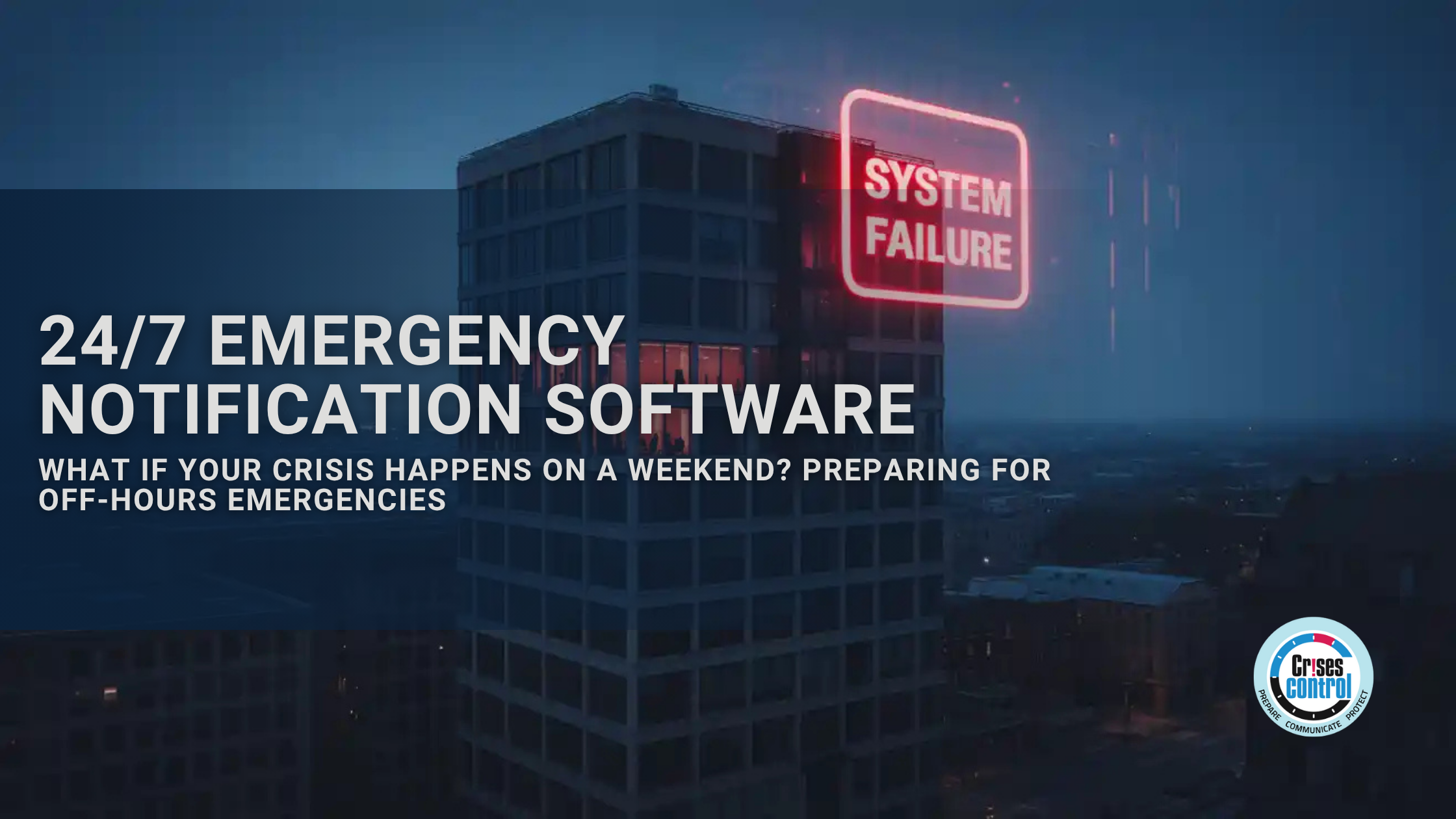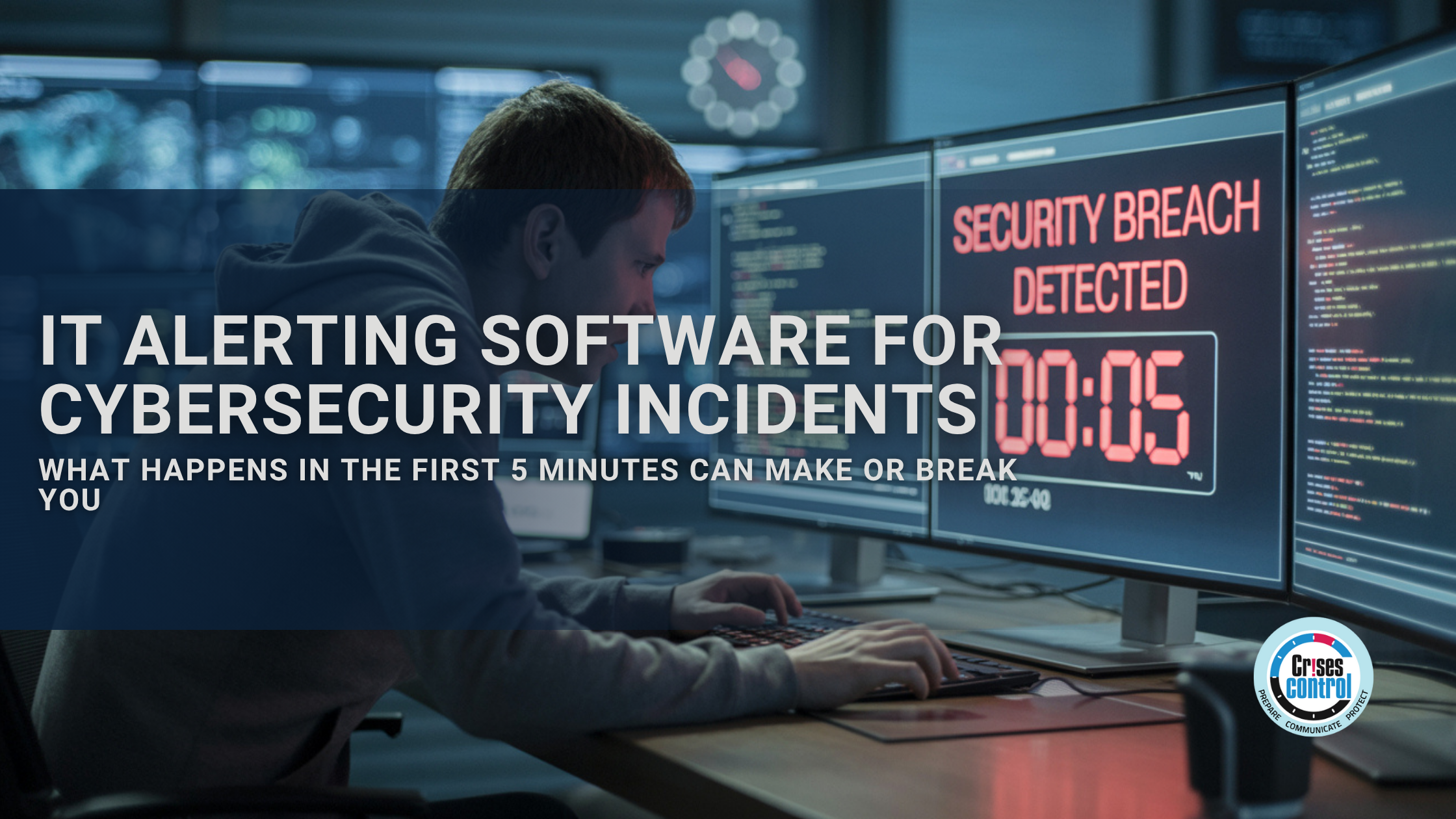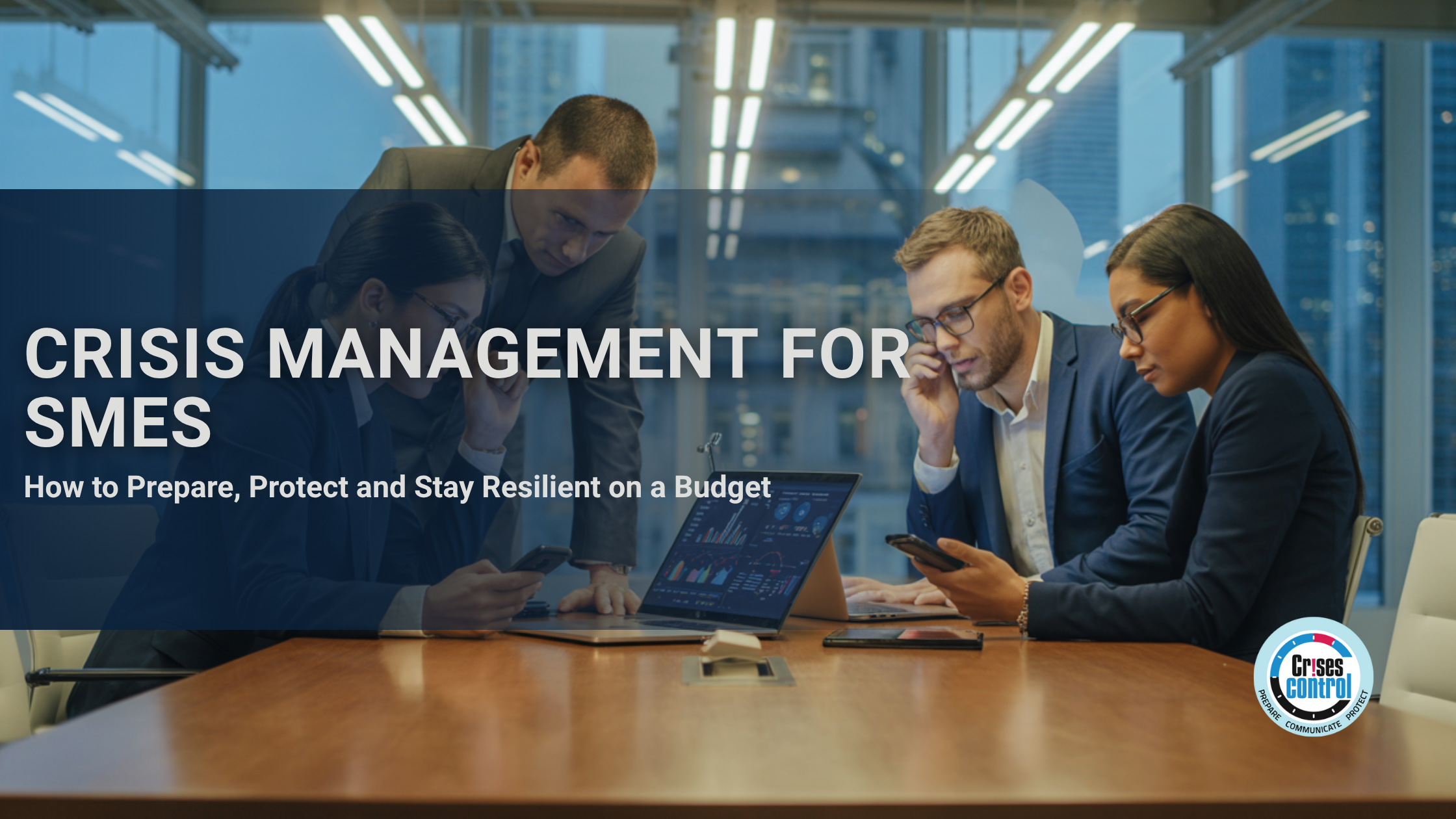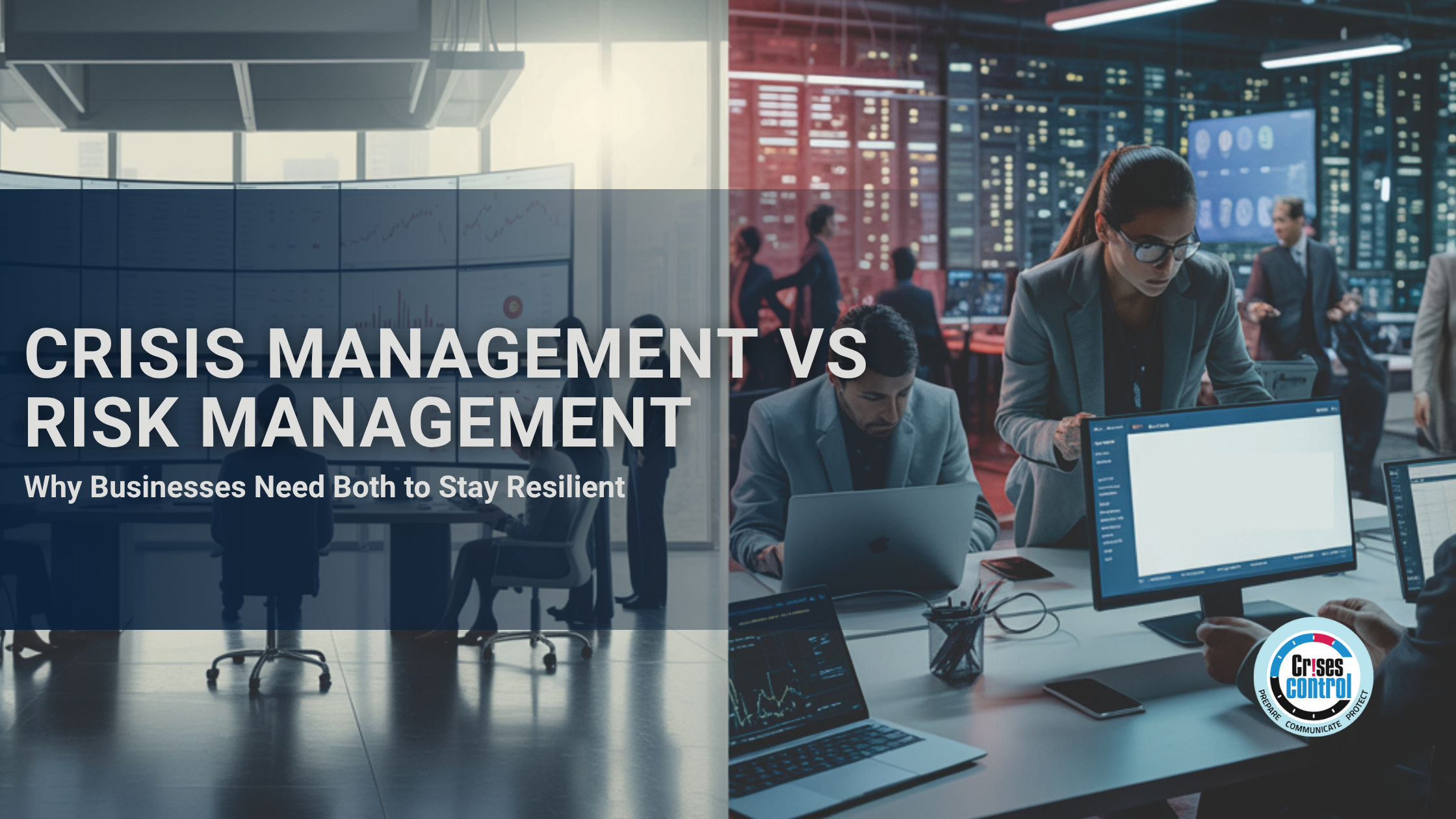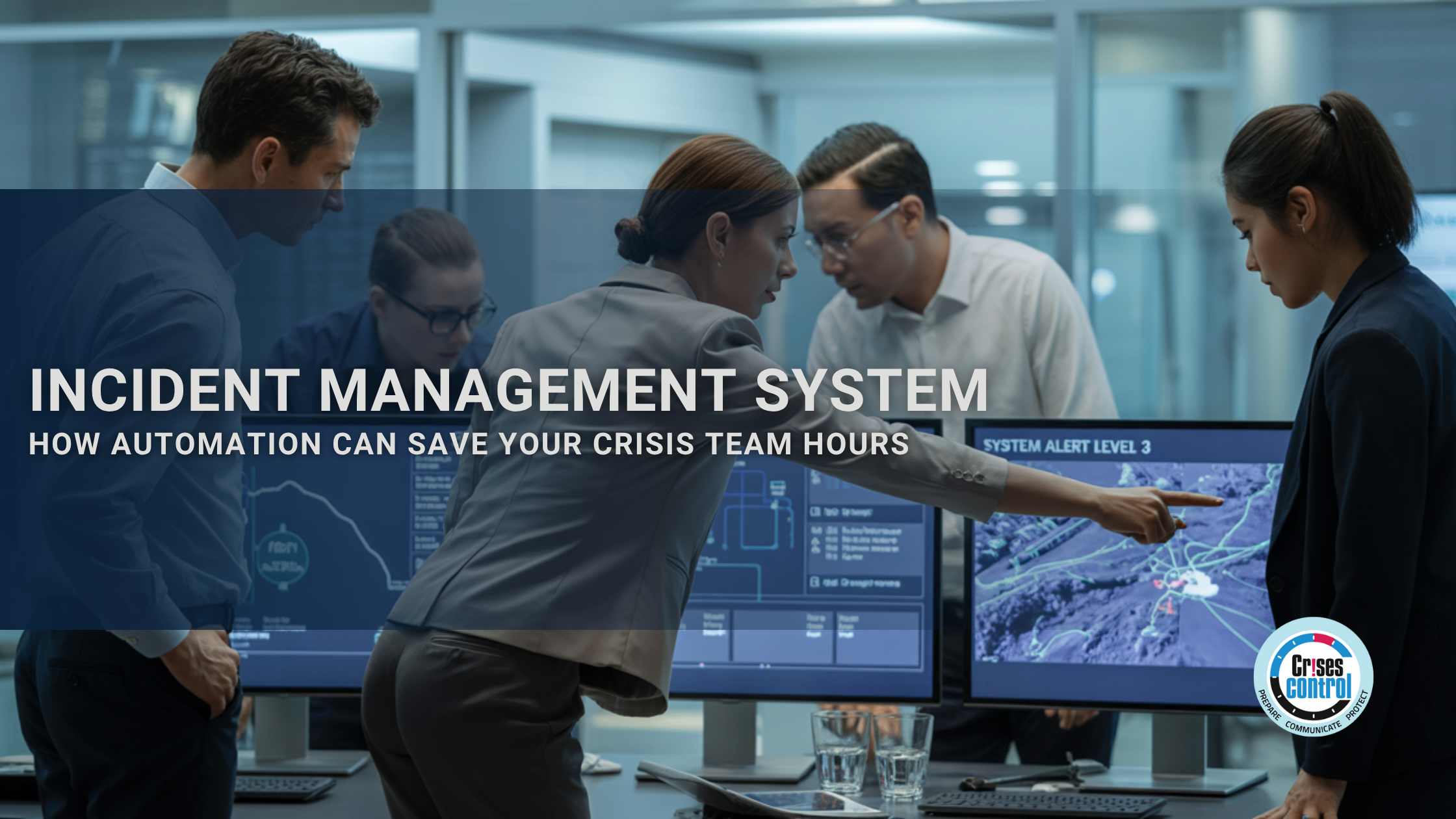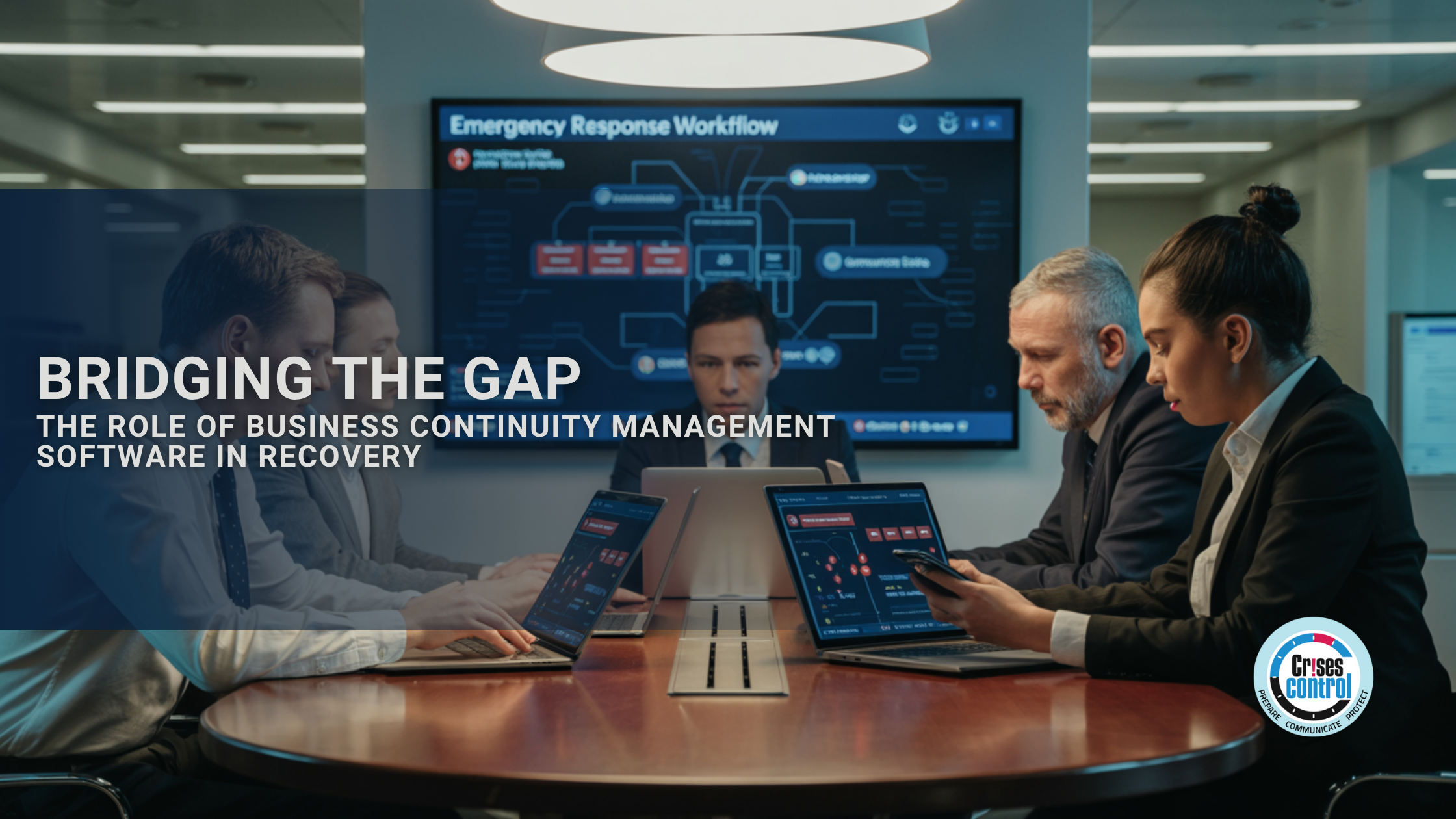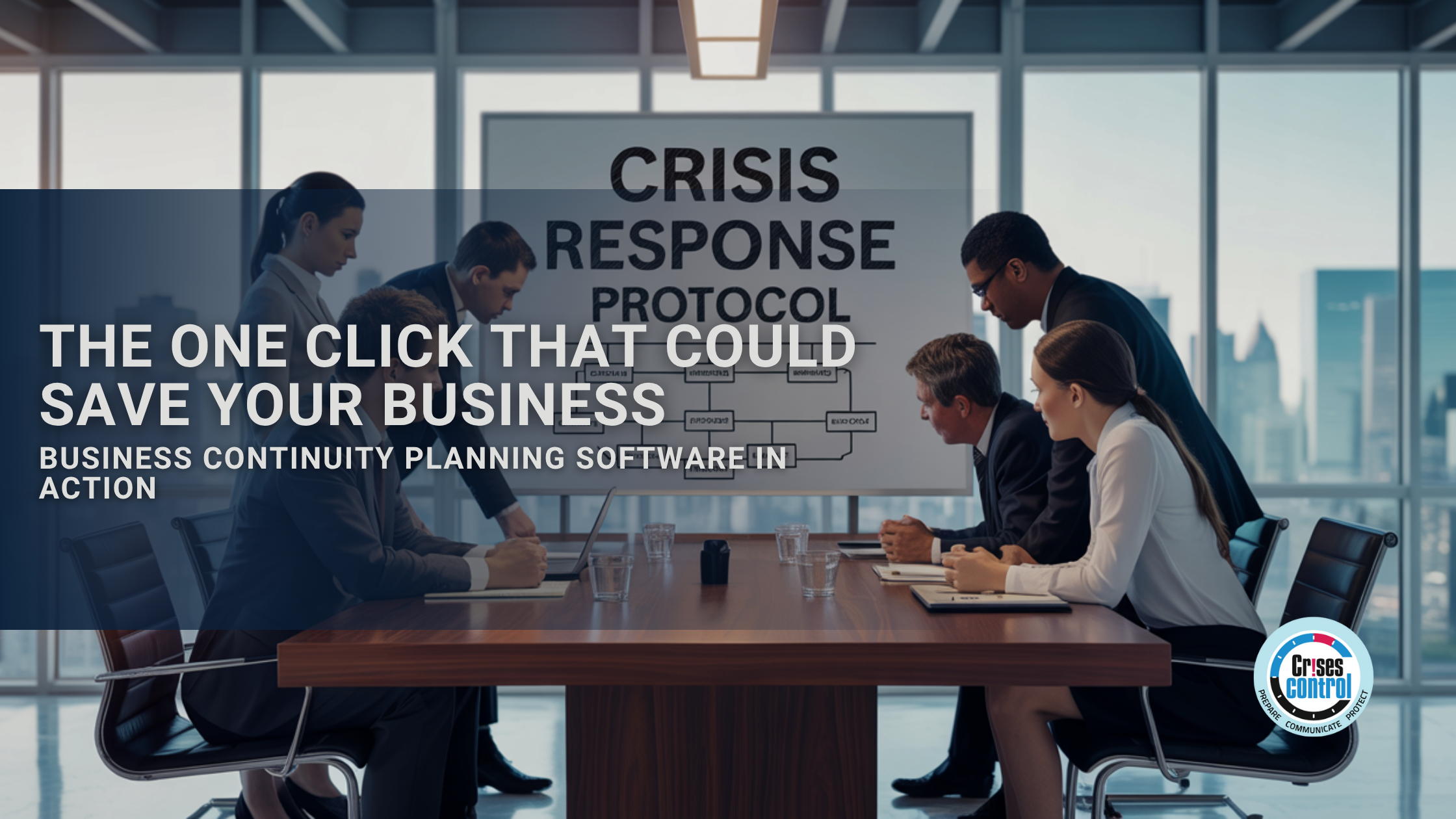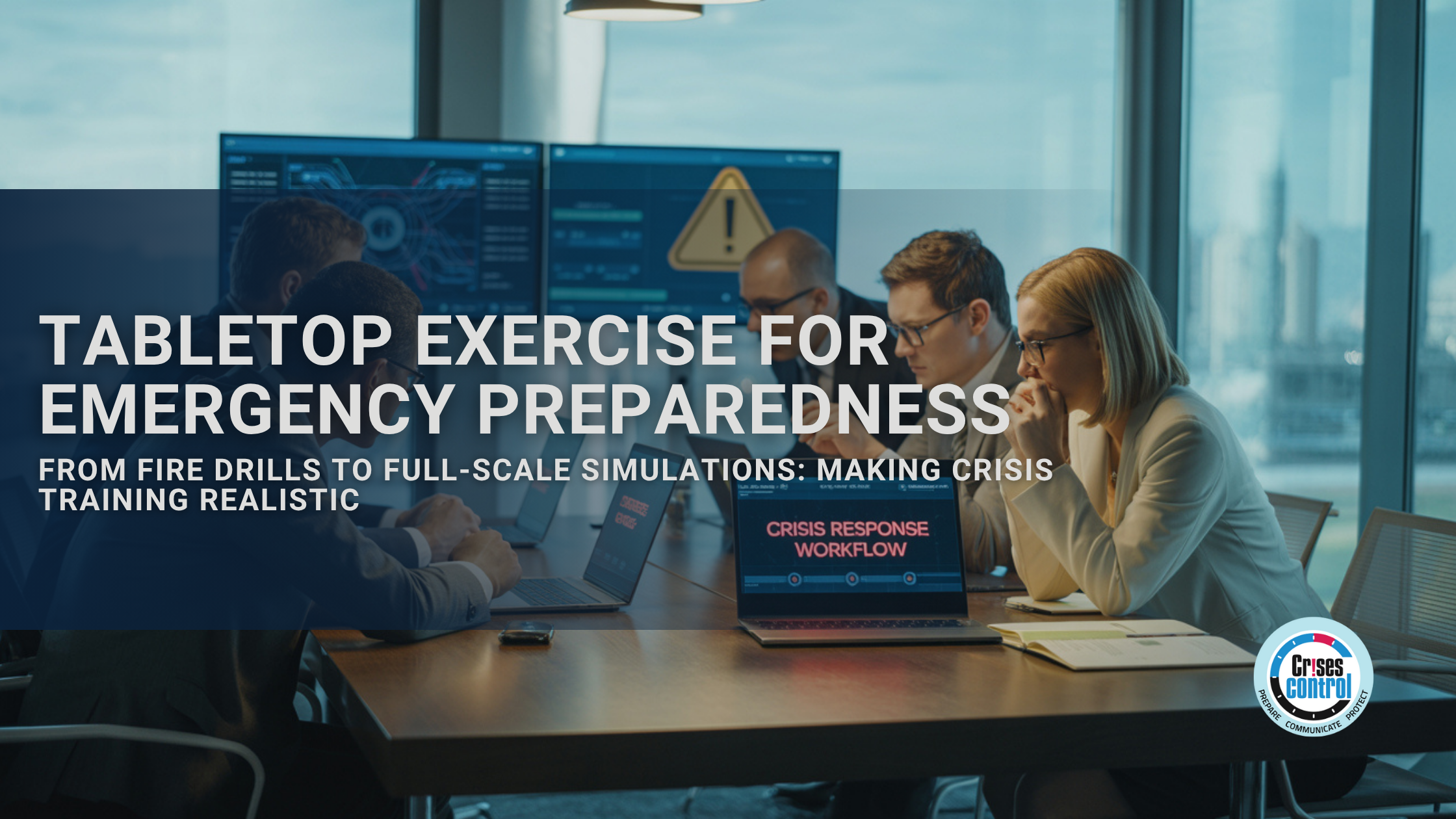July 3, 2025
Real-Time Communication in Microsoft Teams: Ensuring Speed and Safety
Written by Anneri Fourie | Crises Control Executive A Crisis Doesn’t Wait. Can Your Alerts? In a crisis, real-time communication isn’t optional, it’s everything. A server crashes at two in the morning. A fire alarm sounds in an empty office. A field team receives a severe weather warning. In all these moments, how quickly you notify people can be the difference between chaos and...
July 2, 2025
Emergency Notification Software: Transforming Microsoft Teams into a Mass Communication Powerhouse
Written by Anneri Fourie | Crises Control Executive When speed and clarity matter, Emergency Notification Software makes all the difference. You’re sitting at your desk. A colleague rushes in to say the company website has gone offline. Customer services are flooded with calls. No one’s sure what to do next....
July 1, 2025
Crisis Management Software: Streamline Your Response With Our New Microsoft Teams Integration
Written by Anneri Fourie | Crises Control Executive Crisis Management Software is critical when every second counts in an emergency. Imagine it is the middle of the night when suddenly your organisation is hit by a ransomware attack. Your crisis plan sits somewhere on a shared drive, buried in a...
June 30, 2025
AI Crisis Management: How CRAiG by Crises Control Revolutionises Emergency Response
Written by Anneri Fourie | Crises Control Executive When Every Minute Counts, Clarity Is Critical A crisis doesn’t wait. Whether it’s a cyberattack, a system outage, a fire in your data centre or a major supply chain failure, the clock starts ticking the moment something goes wrong. What often causes...
June 27, 2025
How Mass Notification Software Helps You Comply with Martyn’s Law
Written by Anneri Fourie | Crises Control Executive Why Mass Notification Software Can Be the Difference Between Safety and Chaos Many organisations still rely on outdated methods to communicate during emergencies. These might include group chats, loudspeakers, or even manual phone trees. In normal situations, they’re inconvenient. But during a...
June 26, 2025
Multi-Language Emergency Communication System: Reaching Every Employee, Everywhere
Written by Asipe Nokenke | Marketing Assistant In the heat of a crisis, clarity saves lives. But clarity can’t exist without understanding, and that understanding depends on language. A multi-language emergency communication system ensures that when an emergency strikes, your message doesn’t get lost in translation. For organisations with global...
June 25, 2025
24/7 Emergency Notification Software: What If Your Crisis Happens on a Weekend? Preparing for Off-Hours Emergencies
Written by Asipe Nokenke | Marketing Assistant 24/7 Emergency Notification Software: The difference between control and chaos when no one is in the office 24/7 emergency notification software is the system that makes sure your organisation doesn’t fall apart when a crisis hits outside of working hours. Think Saturday afternoon,...
June 24, 2025
IT Alerting Software for Cybersecurity Incidents: What Happens in the First 5 Minutes Can Make or Break You
Written by Asipe Nokenke | Marketing Assistant IT alerting software for cybersecurity incidents is your first line of defence when disaster strikes without warning. When a cyberattack hits, there’s no invitation, no countdown, and no bells, just the immediate, high-stakes reality that your systems are under threat and your business...
June 23, 2025
CRAiG, Translations & Teams: What’s New in Crises Control to Supercharge Your Crisis Response
Written by Anneri Fourie | Crises Control Executive When the stakes are high and every second matters, your organisation’s crisis response strategy must not only be fast, but intelligent, multilingual, secure and seamlessly integrated. That’s exactly where Crises Control delivers with its newly released Version 6.1.0, now available across both...
June 20, 2025
Crisis Management for SMEs: How to Prepare, Protect and Stay Resilient on a Budget
Written by Chanay Blomkamp | Crises Control Marketing Assistant Why Small Businesses Often Struggle to Recover from a Crisis Crisis Management is often overlooked by small businesses until it's too late. When something unexpected happens in a small business, it can bring everything to a standstill. Whether it is a...
June 18, 2025
Crisis vs Risk Management: Why Businesses Need Both to Stay Resilient
Written by Chanay Blomkamp | Crises Control Marketing Assistant The Real Cost of Confusing Planning with Action Let’s say your company has a comprehensive risk register. You’ve listed potential threats, rated them by impact and likelihood, and created mitigation strategies. Everything looks good on paper. Then, a real incident strikes....
June 18, 2025
Incident Management System: How Automation Can Save Your Crisis Team Hours
Written by Anneri Fourie | Crises Control Executive An Incident Management System is no longer just a tool for tracking problems. It is the cornerstone of an organisation’s ability to respond quickly and effectively when unexpected events occur. Yet many businesses still rely on slow, manual processes to handle incidents,...
June 16, 2025
Crisis Management Tools for Healthcare Providers: Ensuring Continuity in Critical Moments
Written by Chanay Blomkamp | Crises Control Marketing Assistant Why Every Second Matters in a Healthcare Crisis Hospitals never get the luxury of slowing down when problems appear. Whether it is a cyberattack that locks access to patient records, a fire in a critical ward or a sudden influx of...
June 16, 2025
Bridging the Gap: The Role of Business Continuity Management Software in Recovery
Written by Anneri Fourie | Crises Control Executive Why Recovery Is the Overlooked Challenge in Crisis Management Business Continuity Management Software often helps organisations manage the first few critical hours of a crisis. During this time, the priority is to protect employees, contain damage, and restore basic operations. However, many...
June 13, 2025
The One Click That Could Save Your Business: Business Continuity Planning Software in Action
Written by Anneri Fourie | Crises Control Executive When Time Fails You, Will Your Crisis Plan Work? Business continuity planning starts with being ready for the unexpected. A crisis never sends a calendar invite. It could be a power failure during peak trading hours, a ransomware attack just before payroll...
June 12, 2025
Tabletop Exercise for Emergency Preparedness: From Fire Drills to Full-Scale Simulations: Making Crisis Training Realistic
Written by Asipe Nokenke | Marketing Assistant Tabletop exercises expose the real test of your emergency plan, not when it's written, but when it's activated. You’ve run the fire drills. The emergency exits are marked. A copy of the business continuity plan sits on the intranet. But when an actual...
June 11, 2025
Stop Guessing and Start Leading: How a Business Continuity Maturity Model Shapes Real Resilience
Written by Anneri Fourie | Crises Control Executive Most organisations have business continuity plans. Yet, when a crisis hits, far too many discover that these plans fall short. They may have documents and checklists, but those don’t always translate into real-world resilience. The problem is not the lack of plans,...


